- Sep 22, 2013
- 4,956
- 250
- 85
This is a capitalism-bureaucracy vignette inspired by Glengarry Glen Ross.
Signing off,

====
Americans in the modern age fell into one of two groups --- bureaucrats and poets. The bureaucrats were represented in Herman Melville's eerie office workaholic tale of Bartleby; the poets were presented in Herman Melville's iconic tale of sea-faring obsession involving a great whale, Moby Dick. It was really about a schism caused by new age commerce culture (i.e., World Bank).
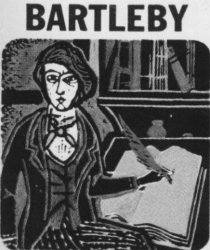
All those who preferred Moby Dick were considered those interested in great expositions about fantasy, not in the psychiatric-mechanics of bureaucratic gauntlets. All those who preferred Bartleby were considered those interested in intricate presentations of civilization infrastructure, not in daydreams about metaphysics translations(!). Who was really the best 'representative' group of modern capitalism theory --- the dreamers or the do-ers?
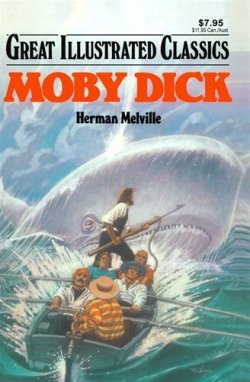
At Yale University, Literature and Humanities courses were being taught by seer-like professors/scholars such as Dudley Andrew, investigator/lecturer of psycho-sociological links between pop-media and socialization. Dudley commented on the nouveau-relevance of 'urban-anaconda' matrix-themed films such as Woody Allen's sardonic Celebrity and Sam Mendes haunting and disturbing American Beauty. Andrew was not a celebrity himself but represented the new sector of pedestrian intelligentsia who now had access to social discourse through modernization-catalysed forum-oriented performance-academics (e.g., Wikipedia).
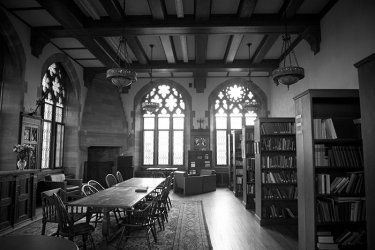
Dudley Andrew was going to set the stage right about why the little mermaid in Hans Christian Andersen's fatalism-romance about the titular sprite felt betrayed and why Tinkerbell was turned by Peter Pan in some adaptations experimenting with metaphysics etiquette. You see, Andrew was interested in 'folkloric intelligence' and he was therefore curious about tales of toy-obsession (e.g., Frankenstein). He made a real splash at Yale and drew the attention of American super-celebrities Tom Cruise and Tom Hanks who wanted to talk to him about their daydream-films Rain Man and Splash!

Andrew made a deal with the Devil so he could become a media priest of the highest calibre. You see, Andrew could not resist the Satanic temptation to use the media/classrooms as a springboard for marketing great modernism-symbolic ideas/topics to contribute to the modern age of 'dialogue-oriented aesthetics' (e.g., Facebook, Twitter, etc.). So the Devil turned Andrew into Dr. Mindbender, and he was now determined to destroy any sentimentality about youngsters entertaining imaginations about 'guiding gods' (e.g., Aphrodite, Shakespeare, JFK, etc.).
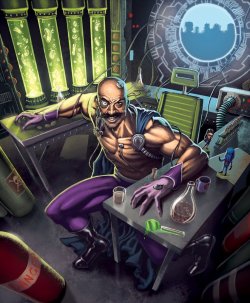
Capitalism and democracy are not perfectly-compatible and dangerous sirens of Babylon rise to create trouble and defy the moral authority of men in civilization-thrones (such as Yale's Professors Dudley Andrew --- aka, 'Dr. Mindbender'). These sirens remind people that the Statue of Liberty and Aunt Jemima are not necessarily anti-poverty. How would a mad-genius such as Andrew stand against the cries of such economics-hellraisers? This was capitalism's drama, and you could see why an alien-intelligence species such as a Xenomorph would want to visit Earth to analyse civilization(!).
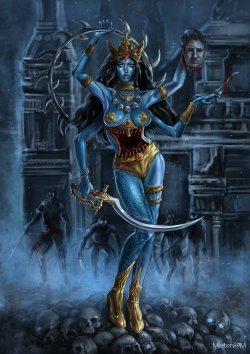
Maybe the interest in modern pedestrian intellectualism intrigue (e.g., Enron, Napster, 9/11, etc.) by American super-celebrities like Tom Cruise and Tom Hanks would remind consumers of the intrinsic value of marketing, making Dr. Mindbender a literal 'god' of modernism-pragmatism. Was this the blessing or curse of Facebook-humanity?
====


Signing off,

====
Americans in the modern age fell into one of two groups --- bureaucrats and poets. The bureaucrats were represented in Herman Melville's eerie office workaholic tale of Bartleby; the poets were presented in Herman Melville's iconic tale of sea-faring obsession involving a great whale, Moby Dick. It was really about a schism caused by new age commerce culture (i.e., World Bank).

All those who preferred Moby Dick were considered those interested in great expositions about fantasy, not in the psychiatric-mechanics of bureaucratic gauntlets. All those who preferred Bartleby were considered those interested in intricate presentations of civilization infrastructure, not in daydreams about metaphysics translations(!). Who was really the best 'representative' group of modern capitalism theory --- the dreamers or the do-ers?

At Yale University, Literature and Humanities courses were being taught by seer-like professors/scholars such as Dudley Andrew, investigator/lecturer of psycho-sociological links between pop-media and socialization. Dudley commented on the nouveau-relevance of 'urban-anaconda' matrix-themed films such as Woody Allen's sardonic Celebrity and Sam Mendes haunting and disturbing American Beauty. Andrew was not a celebrity himself but represented the new sector of pedestrian intelligentsia who now had access to social discourse through modernization-catalysed forum-oriented performance-academics (e.g., Wikipedia).

Dudley Andrew was going to set the stage right about why the little mermaid in Hans Christian Andersen's fatalism-romance about the titular sprite felt betrayed and why Tinkerbell was turned by Peter Pan in some adaptations experimenting with metaphysics etiquette. You see, Andrew was interested in 'folkloric intelligence' and he was therefore curious about tales of toy-obsession (e.g., Frankenstein). He made a real splash at Yale and drew the attention of American super-celebrities Tom Cruise and Tom Hanks who wanted to talk to him about their daydream-films Rain Man and Splash!
Andrew made a deal with the Devil so he could become a media priest of the highest calibre. You see, Andrew could not resist the Satanic temptation to use the media/classrooms as a springboard for marketing great modernism-symbolic ideas/topics to contribute to the modern age of 'dialogue-oriented aesthetics' (e.g., Facebook, Twitter, etc.). So the Devil turned Andrew into Dr. Mindbender, and he was now determined to destroy any sentimentality about youngsters entertaining imaginations about 'guiding gods' (e.g., Aphrodite, Shakespeare, JFK, etc.).

Capitalism and democracy are not perfectly-compatible and dangerous sirens of Babylon rise to create trouble and defy the moral authority of men in civilization-thrones (such as Yale's Professors Dudley Andrew --- aka, 'Dr. Mindbender'). These sirens remind people that the Statue of Liberty and Aunt Jemima are not necessarily anti-poverty. How would a mad-genius such as Andrew stand against the cries of such economics-hellraisers? This was capitalism's drama, and you could see why an alien-intelligence species such as a Xenomorph would want to visit Earth to analyse civilization(!).

Maybe the interest in modern pedestrian intellectualism intrigue (e.g., Enron, Napster, 9/11, etc.) by American super-celebrities like Tom Cruise and Tom Hanks would remind consumers of the intrinsic value of marketing, making Dr. Mindbender a literal 'god' of modernism-pragmatism. Was this the blessing or curse of Facebook-humanity?
====

